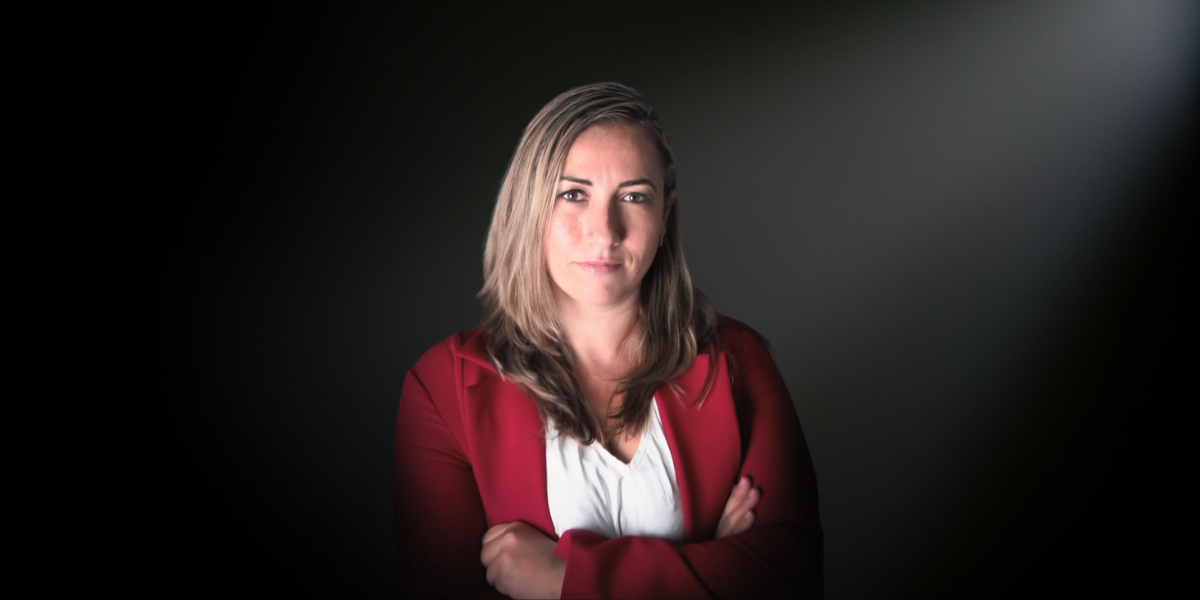Israeli Scene
Personality
Cochav Elkayam-Levy Exposes the Brutality of Hamas’s Crimes

Just one week after the brutal terror attack on communities in southern Israel, attorney Cochav Elkayam-Levy, a leading feminist legal advocate in Israel, established the Civil Commission on October 7 Crimes Committed by Hamas Against Women and Children. The non-governmental initiative is under the auspices of the Dvora Institute for Gender and Sustainability Studies, which Elkayam-Levy founded and leads.
The 40-year-old has emerged as one of the country’s authoritative voices in the investigation of the sex crimes that initially went largely ignored by the international community. Elkayam-Levy’s exposure of the brutalities—gang rapes, mutilations of breasts and genitals, women violated and slaughtered with knives in front of their own families—was part of what prompted the United Nations to send an investigative team to Israel in January.
Elkayam-Levy is a scholar of international law at the Leonard Davis Institute for International Relations at the Hebrew University of Jerusalem, Reichman University and the Shalom Hartman Institute. Prior to October 7, she rose to prominence after authoring a report that analyzed Israel’s proposed judicial reforms and concluded that the overhaul would imperil women’s progress toward political equity.
Now, the legal activist and mother of four shares what’s next for the civil commission and for Israel. This interview has been edited for brevity and clarity.
What have been the major takeaways so far in leading the civil commission?
At the beginning, it was devastating to see the denial around us. The silence by the most important international human rights bodies felt like a betrayal not only of us, but of humanity. This led me to understand that I must document everything to fight against denial and to ensure accountability for the perpetrators. Our archive of testimonies, news accounts and visual evidence is a vital repository not only for the current discourse, but also for future generations.
We’re establishing a comprehensive legal framework to ensure that this collection adheres to rigorous global standards. We’ve called upon human rights-focused organizations like the United Nations to organize an international independent inquiry. And we’re working with prominent partners around the world to expose Hamas’s deeds as crimes against humanity and to promote legal procedures, such as international tribunals, to compensate victims’ families.
How should Israel make its case, both in legal courts and in the court of public opinion?
In the court of public opinion, transparent communication is crucial. Israel must proactively share information and foster open dialogue, both within the nation and internationally.
Creating a supportive environment for victims of trauma—both within legal proceedings and in the broader community—is also crucial for Israel to demonstrate its commitment to holistic justice.
Prior to October 7, you led an effort to highlight the impact to women of the government’s proposed judicial overhaul. What other key structural issues need to be addressed?
In Israel, there is a critical need for systemic change, particularly in ensuring that women assume leading decision-making positions. We entered this current crisis amid a concerning decline in women’s representation in such roles. It is imperative that women comprise at least 50 percent of all significant government positions for the future of Israel and its ability to rise and heal from this latest crisis.
How did your years in the United States, where you earned graduate degrees at the University of Pennsylvania Carey Law School, influence you?
Studying at UPenn heightened my awareness of the most pressing challenges humanity is facing—things like climate justice and the impact of technology on human rights—and the interplay between local and international dynamics.
During a recent visit to the U.S., I came to understand that millions of Jews around the world share our collective trauma after October 7. The deep grief and fear of antisemitism were evident. And that underscores the necessity to redefine the relationship between Israelis and Jews in the Diaspora, grounding it in a shared destiny. It is imperative that we support each other to become stronger as a people. We owe this to our children.
How did you get interested in feminist legal issues?
My family was very traditional, but my mother was a career woman, and I always admired her. Both my parents were educators who instilled in me a strong sense of social responsibility. At the same time, I grew up in Lod, a diverse and multicultural city. Since I was young, I felt a compelling need to advocate for vulnerable populations, and my sensitivity to gender gaps was a part of it.
What do you do to decompress from your work?
I am embarrassed to share the truth: When I have a rare moment for myself, I watch house décor and building shows with my girls. Seeing homes transform is therapeutic for me. It resonates with my need for renewal and rebuilding.
Hilary Danailova writes about travel, culture, politics and lifestyle for numerous publications.










 Facebook
Facebook Instagram
Instagram Twitter
Twitter
Leave a Reply